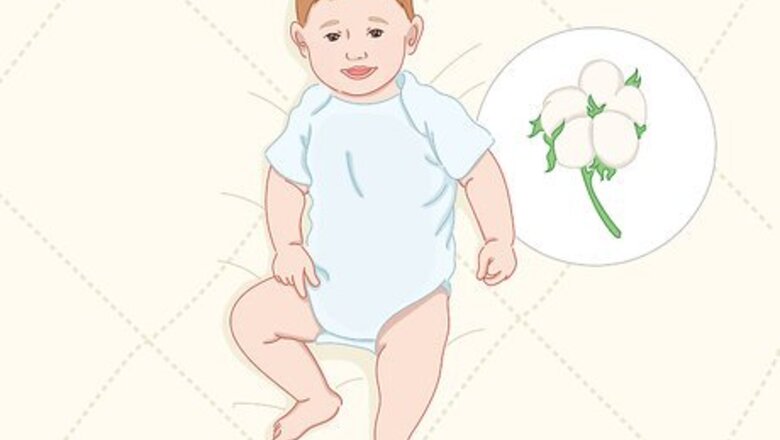
views
Dressing Your Baby for Indoors
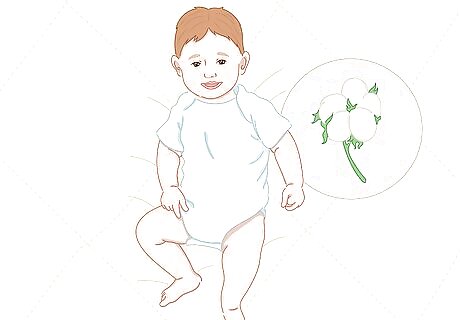
Put a soft cotton onesie on your baby. For the first layer, dress your baby in a comfortable onesie made of a breathable fabric such as wool or cotton. This will help moisture escape so your baby stays warm and dry. While you can dress your baby in a short-sleeve onesie as long as they're very well layered, try to use long-sleeved onesies for the best coverage.
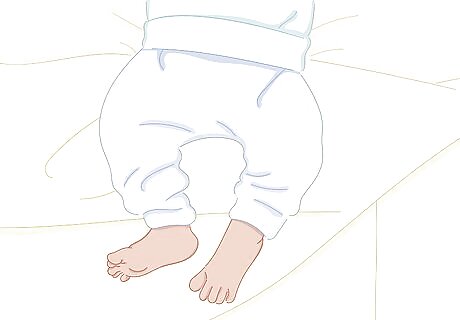
Add fleece pants to the outfit. To add another insulating layer, dress your baby in pants to help trap warmth. Select fleece pants with a snug waist band so they don't slide down your baby's torso. For the warmest pants, look for ones with that extend and cover the feet.
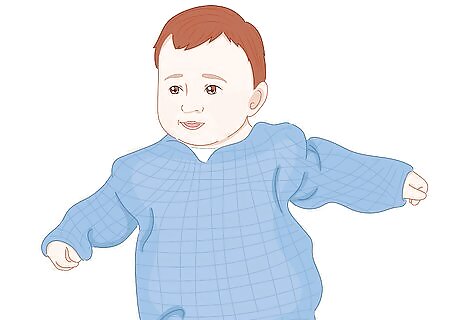
Add a light jacket or sweater. Since most baby onesies are thin, dress your baby in another layer such as a thin fleece jacket or long-sleeved sweater. Pick a jacket or sweater that's soft. If your baby gets too warm, you can easily take off the jacket to remove a layer. For example, once your baby has a long-sleeve onesie on, put on a pair of pants and a light, fleece sweater.
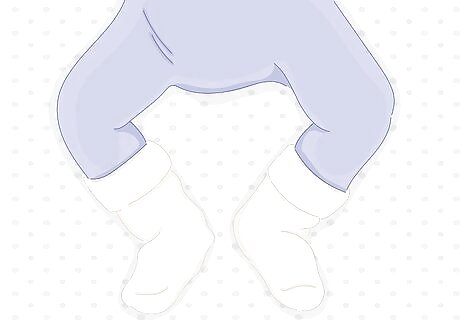
Put warm socks on the baby. If you're dressing your baby in a bodysuit, look for one with attached feet covers. If you're layering your baby in a onesie and pants, put a pair of warm socks on their feet. Try to choose socks with slightly elastic bands that won't slide off the baby's feet.
Adding Layers for Taking Your Baby Outdoors
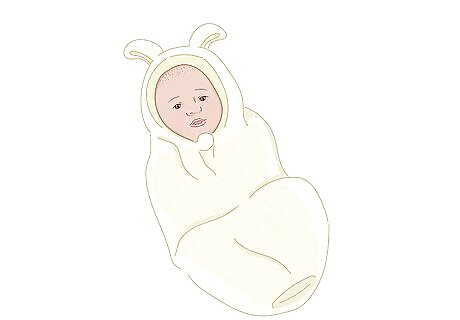
Button your newborn to 6-month-old in a baby bunting. If you want to take your baby outside in the winter, they'll need a few more layers to stay warm. Once you've dressed them in a few light layers, put them in a polyester or down-filled baby bunting. If you have a newborn, you'll also need to wrap them in a blanket.
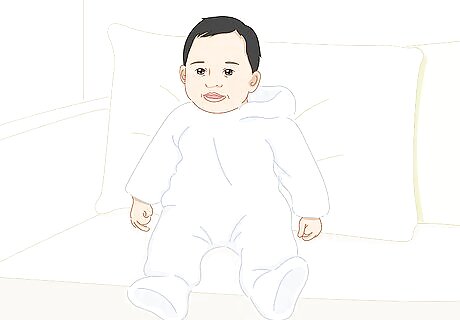
Add a coat or snowsuit for 6- to 12-month-olds. To take an older baby outdoors in winter, choose a coat or snowsuit filled with polyester or down. Look for one that has a hood attached so you can easily put it up over your baby's head. The hood should completely cover your baby's ears as well. If it doesn't, put a fleece hat on your baby's head under the hood.
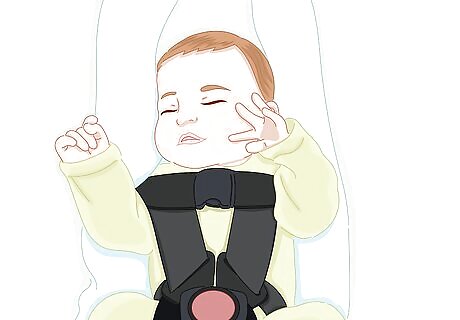
Avoid putting a coat on the baby if you're putting them in a car seat. Bulky coats or puffy jackets will flatten instantly if there's a car crash which will leave a gap between the baby and the car seat harness. Instead, buckle your baby into their car seat and then lay a blanket or coat over the baby. To make it easier to get your baby into their car seat in the winter, keep the seat in the house. Buckle the baby into it and lay the blanket over them. Then you can quickly carry the baby in the car seat to the car once you're ready to go.
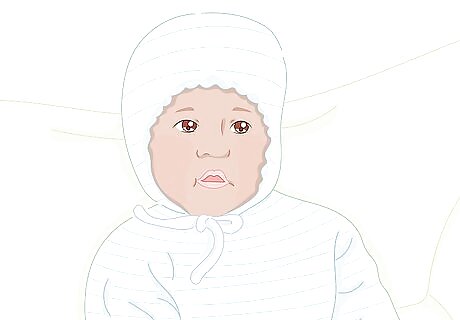
Cover your baby's head and ears with a warm hat. Look for a hat that will go down over the ears or that has ear flaps. Feel the inside of the hat to ensure the fabric isn't scratchy and won't irritate your baby. Many baby hats are lined with fleece so they're comfortable and insulated. Choose a hat that has a Velcro strap and use it to secure the hat under your baby's chin. This way they're less likely to pull the hat off.
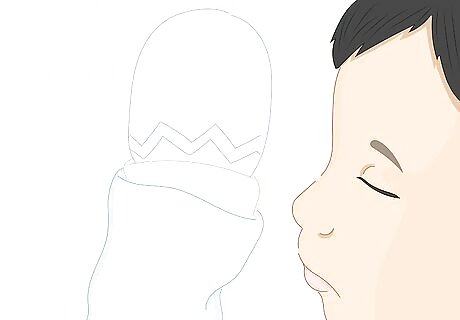
Put mittens on the baby's hands when they'll be outside. Since babies have such small fingers, they get cold very quickly. To protect their hands, put thick mittens on them. Choose mittens that your baby won't be able to pull off easily. Avoid trying to put gloves on your older baby since it will be too difficult to get the individual fingers into them. If your newborn's onesie has hand covers near the cuffs, fold them over the hands for an extra layer of protection.
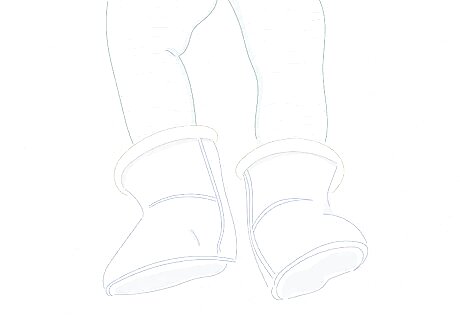
Put boots on your baby to keep their feet warm. Cover your baby's feet with thick socks and then put their baby boots on. These sturdy boots will prevent their feet from getting too cold in the winter. It may be hard to find thick winter boots for small babies, so you may need to put several layers of socks under their booties if you can't find boots.
Keeping Your Baby Warm at Night
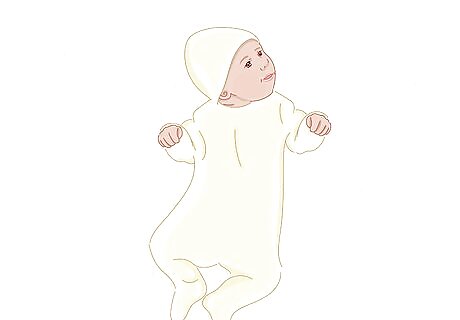
Choose footed pajamas to put your baby in before bed. Put your baby in a footed cotton onesie that covers their arms, legs, and feet. If your baby's room is very cold, you can also put a sleeveless onesie or vest on the baby under the pajama onesie.
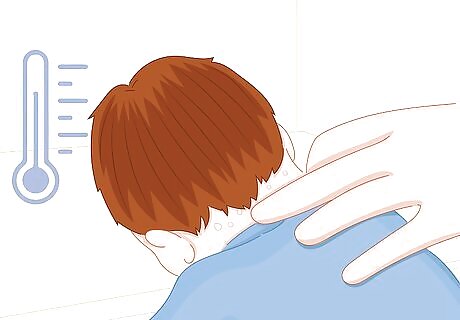
Check your baby's back or tummy to see if they're cool. The best way to determine if your baby is warm enough is to feel their back or tummy. It should feel warm, not cool or sweaty. If your child's hair or face is sweaty, they're probably too hot. Don't use the temperature of your baby's hands or feet to determine if they're cold since these are normally a little cooler than the rest of the body.
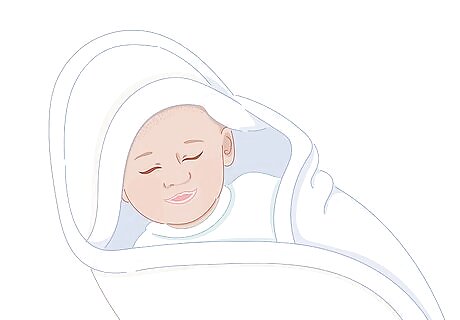
Zip or button your baby into a wearable blanket if their room is cold. While some baby sleep bags are one-size fits all, others are available in sizes to fit your baby. Set your baby in their light pajamas into the wearable blanket and then zip or snap them in. Many of these also have Velcro wraps that you can tuck around the baby so they feel swaddled.
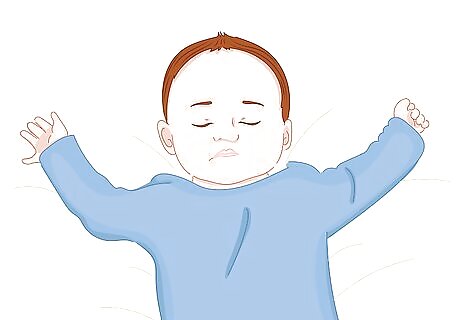
Avoid putting blankets, pillows, and loose bedding in the crib. It's tempting to think that your baby will be cozier if there are quilts, pillows, or blankets in their crib. Unfortunately, having loose bedding in the crib can cause babies to suffocate if they can't push the item away from their face. Instead, just cover the mattress with a sheet and place the baby in the crib. The American Academy of Pediatrics recommends waiting until your baby turns 1 before putting a blanket in their crib. You can make your baby's crib a little warmer by putting a flannel fitted sheet on the mattress in winter.




















Comments
0 comment